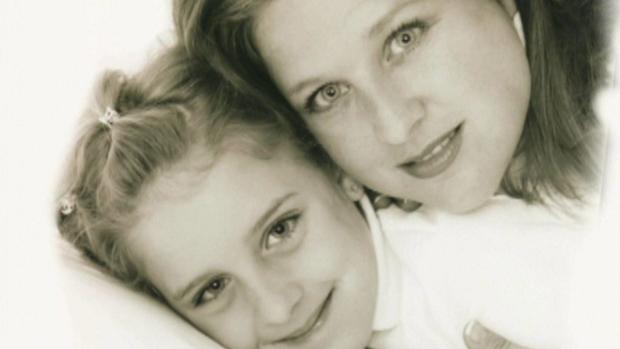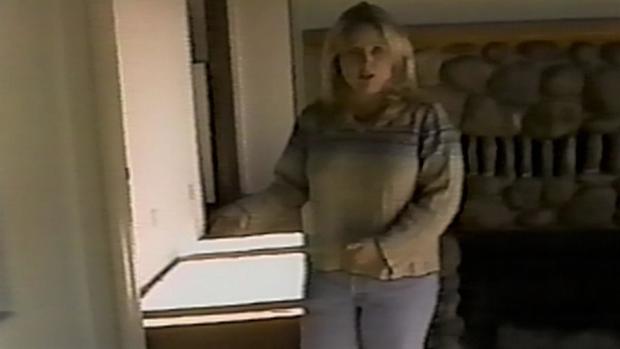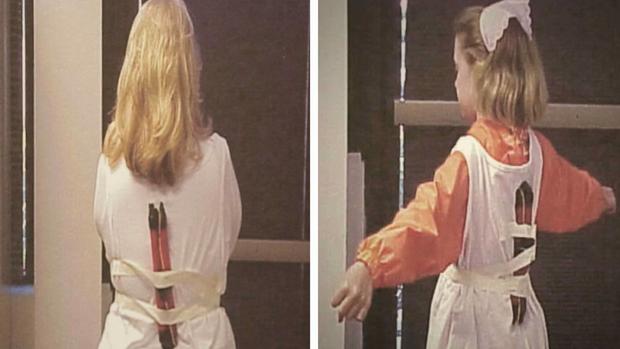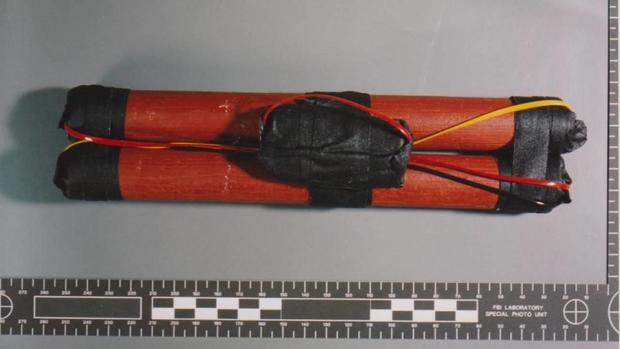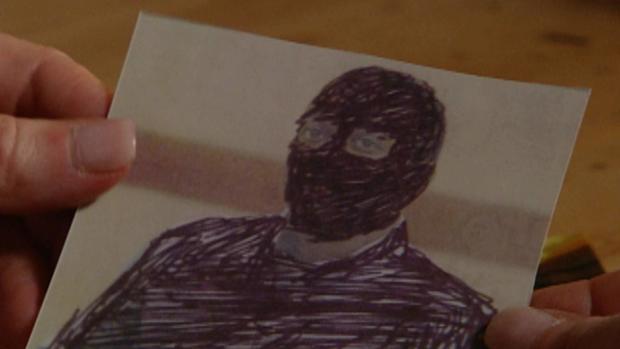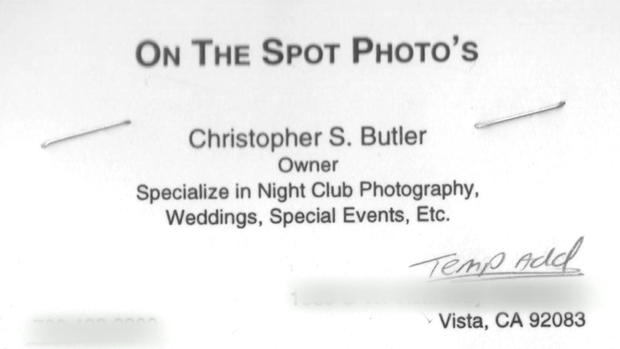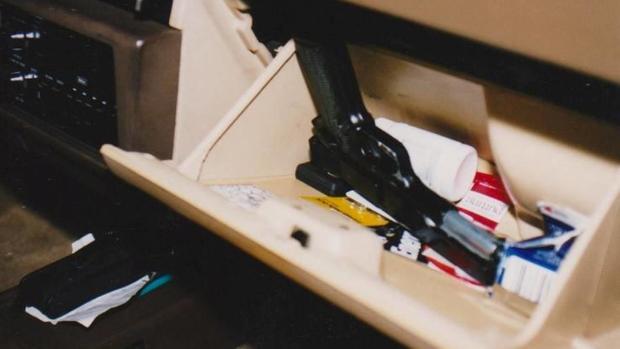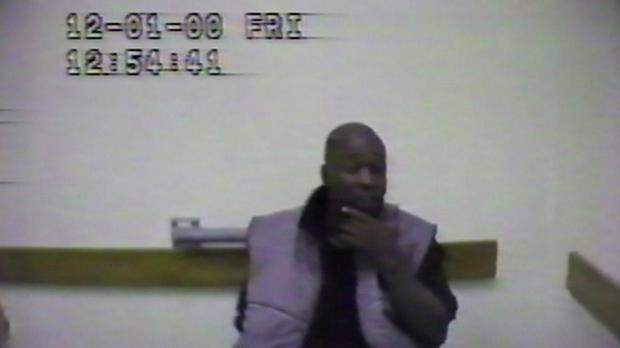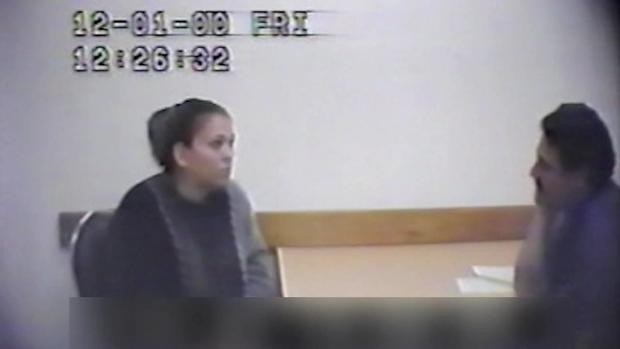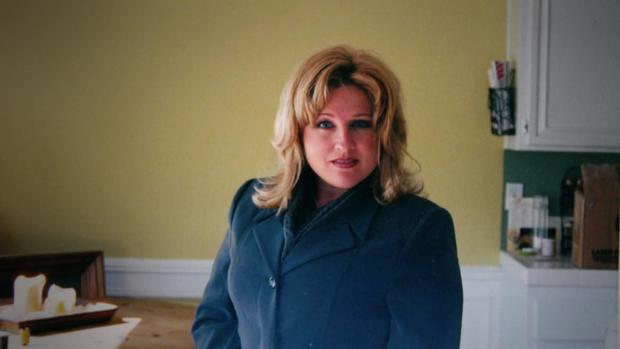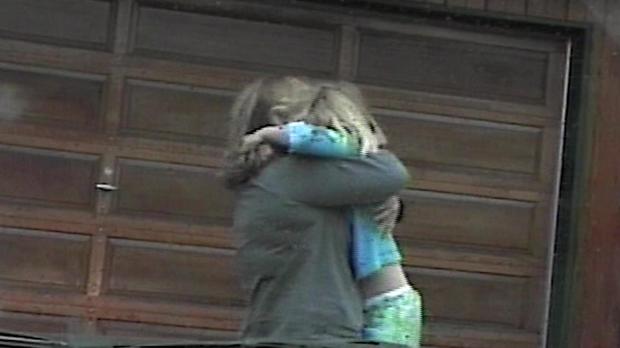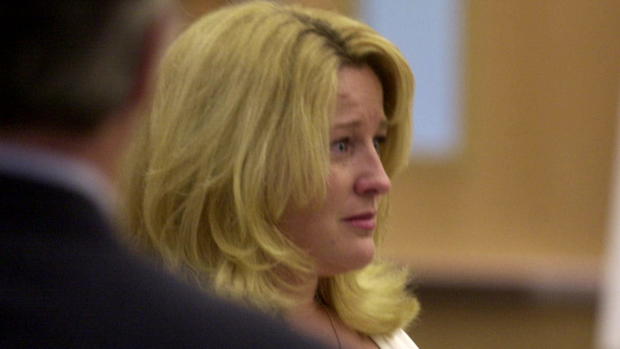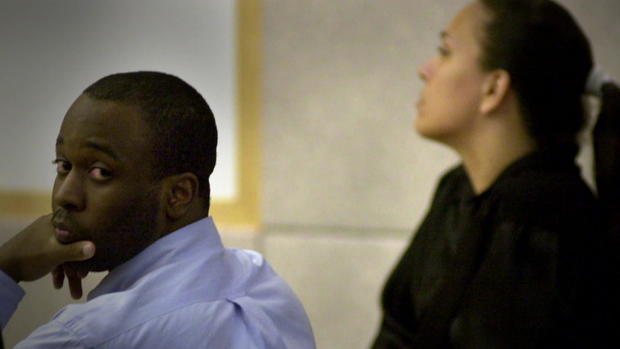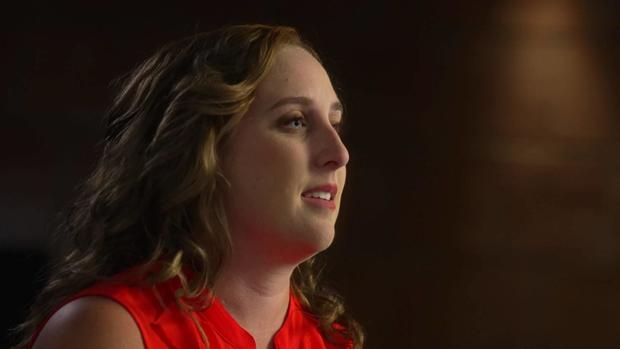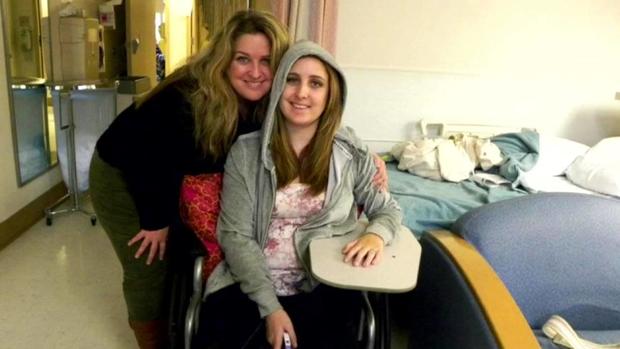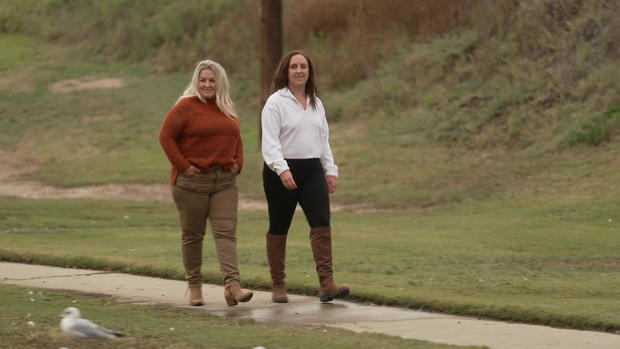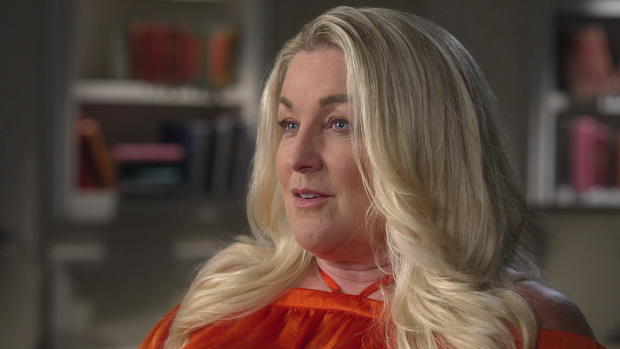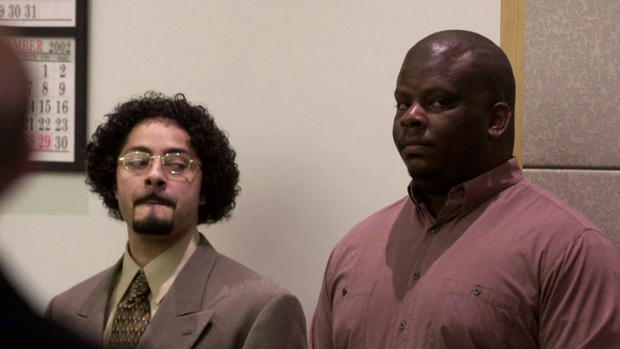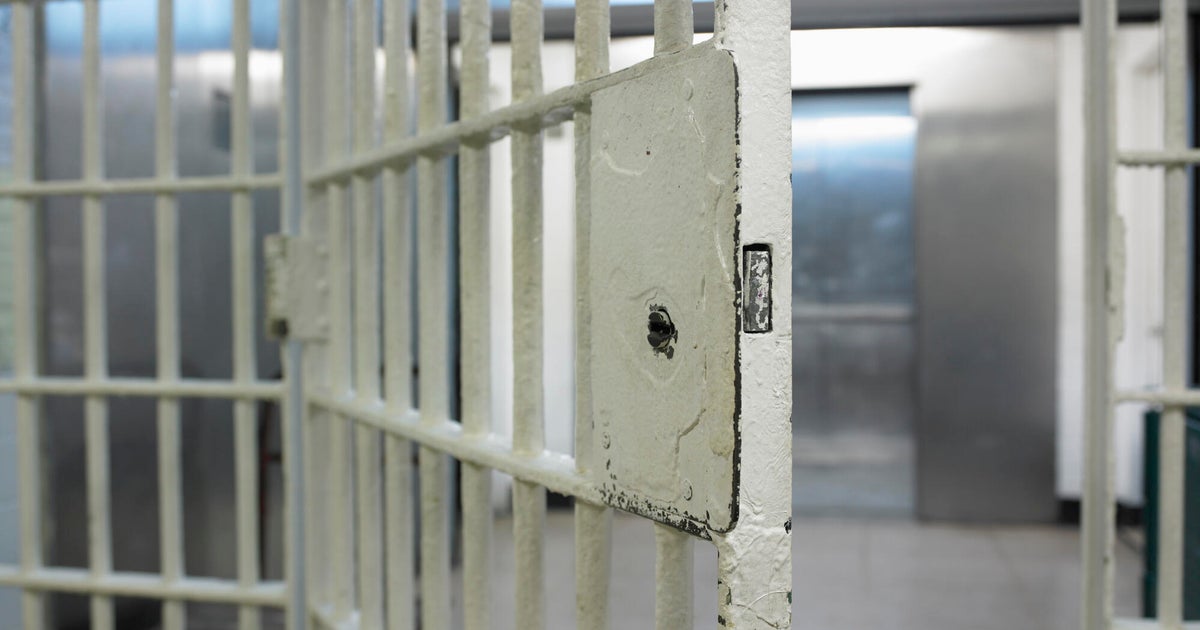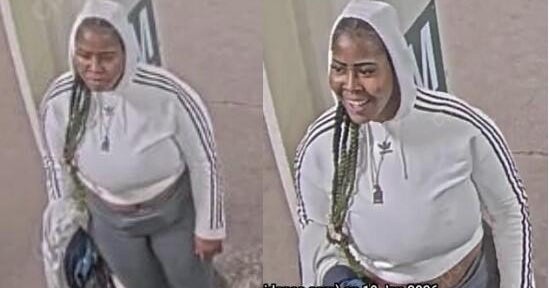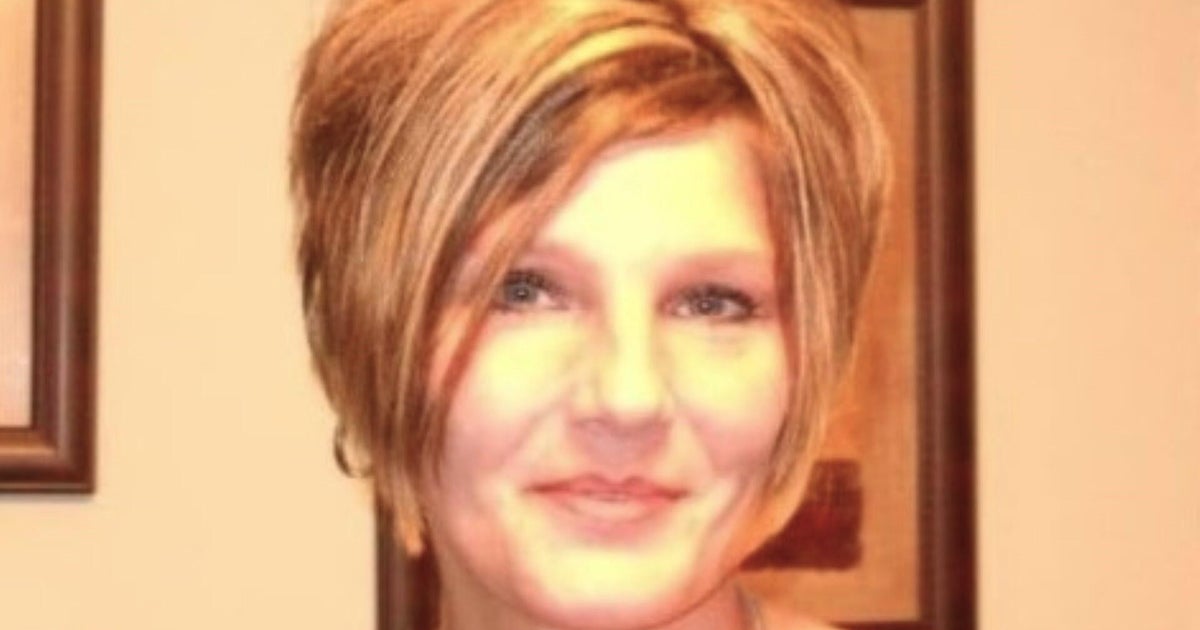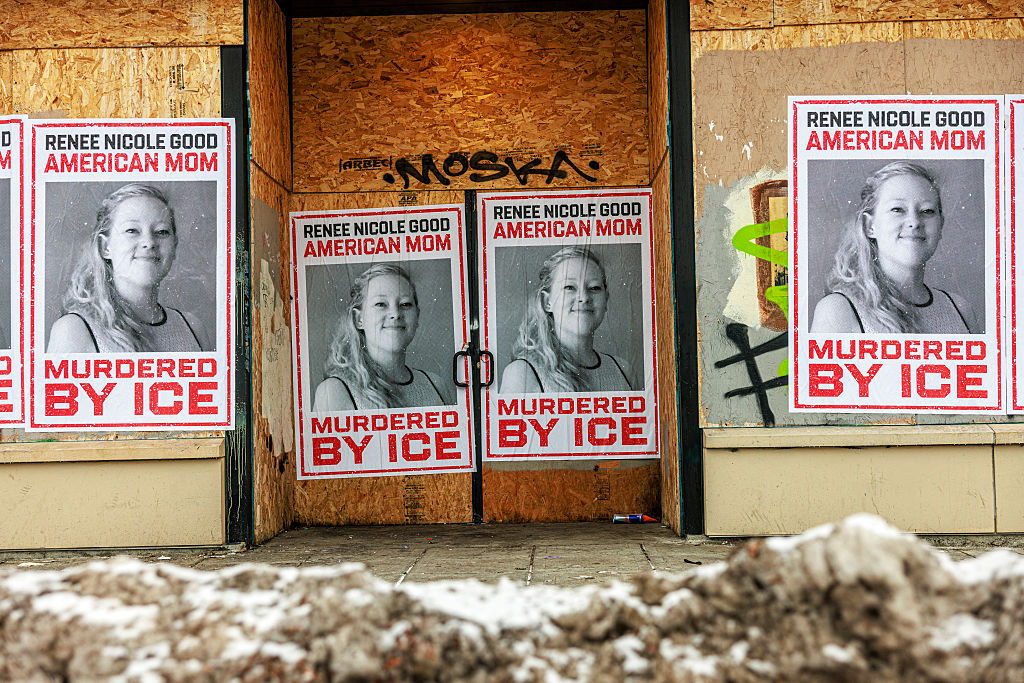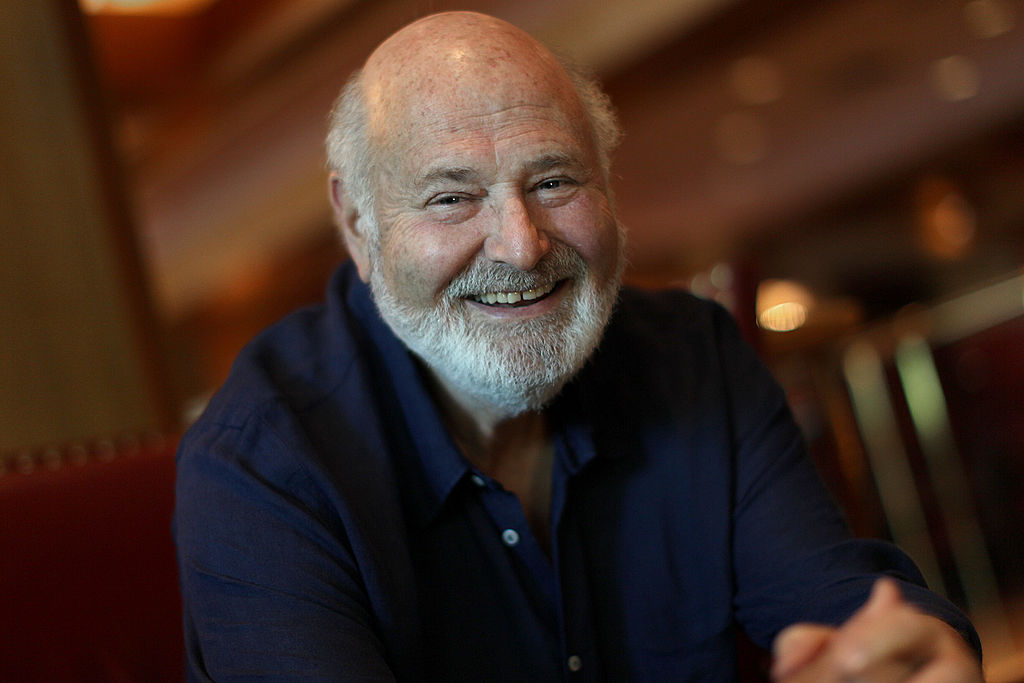Calif. mother who was kidnapped and forced to rob a bank falsely painted as a criminal in court
This story originally aired on Feb. 11, 2023. It was updated on May 24, 2025.
The only monsters that had ever scared Michelle Renee's 7-year-old daughter Breea were make-believe. But on Nov. 20, 2000, just a day before three masked men broke in …
Michelle Renee: She calls me. 'Mom, there's somebody outside the window' … I looked out there. I didn't see anything. I didn't see anybody. … So, I just brushed it off.
Michelle had chalked it up to her child's imagination. But this time was different.
Michelle Renee: She saw them looking through the window. They were there the night before.
The same men now held Michelle and Breea at gunpoint in the living room. The gunmen said they'd been following the 35-year-old bank manager for months.
Michelle Renee: It was very much that mind control thing that they were doing, that "we know everything about you."
Michelle would recount the events inside the house for investigators:
FBI VIDEO OF MICHELLE RENEE AT CRIME SCENE: "We're going to be here all night with you to make sure you know exactly what you're going to do or you will die."
Throughout the night, the ringleader gave specific instructions about how he wanted Michelle to rob her own bank the next morning:
FBI VIDEO OF MICHELLE RENEE AT CRIME SCENE: "We're going to go over this again. This is what you're going to do … When Brinks gets there, you're going to get Brinks' money."
As she huddled with Breea on the couch, now duct taped, Michelle could hear him talking to a woman on a two-way radio.
Michelle Renee: Money One to Money Two were their –
Tracy Smith: That's what they called each other.
Michelle Renee: Yeah, they called each other Money One to Money Two.
Money One was the ringleader. Around 11, the voice on the walkie-talkie got his attention: "Car coming up the driveway. The roommate's there."
It was their roommate Kimbra.
FBI VIDEO OF MICHELLE RENEE AT CRIME SCENE: And they put the gun right here in her face, right up her nose, and said, "don't make us f***ing use this." … I pushed the guy's hand out of her face and said, "don't do this, don't hurt her." And he just pointed it right at me and said, "don't ever f***ing touch me again …"
Michelle realized this might be the last night she ever spent with her daughter.
MICHELLE RENEE VIDEO WALKTHROUGH: It was almost morning. … I just rubbed her hair so she could try to get some sleep.
Michelle Renee: Wondering if that was gonna be the last time I was gonna get to touch her hair and see her sleep … was pretty tough.
In the morning the nightmare would continue.
Michelle Renee: It was like 6 a.m. … he said "Get up. It's time to get ready for work."
FBI VIDEO OF MICHELLE RENEE AT CRIME SCENE: I got dressed and started doing my hair when he came in and stopped me and said, "we need to put the dynamite on you now."
Michelle, her roommate Kimbra, and Breea would all be strapped with dynamite. Then Money One showed Michelle what looked like a doorbell.
Michelle Renee: "This is a detonation device. … you will disintegrate. Your daughter will go first."
FBI VIDEO OF MICHELLE RENEE AT CRIME SCENE:: "One false move, I push this button." …
And they sat me right here and said, "now we're going to take your daughter."
The gunmen put Breea in her bedroom closet.
FBI VIDEO OF MICHELLE RENEE AT CRIME SCENE: I was just telling her I'd be right back, that everything is going to be fine.
Michelle Renee: "Be brave, Mommy" … that was the last thing she said … before I walked out to go to the bank.
Tracy Smith: Did you feel brave?
Michelle Renee: No.
As two of the gunmen stayed in the house, Money One handed Michelle a briefcase stuffed with a duffle bag before he crouched in the back of her Jeep. With dynamite on her back and a gun to her side, she drove to work.
Tracy Smith (outside of the bank): So, you pull up into your spot … What does he tell you before you get out of the car?
Michelle Renee: "Don't … don't f*** this up."
Tracy Smith: The Brinks truck came at — 8:50?
Michelle Renee: I believe right around 8:50 was the drop, right over here (poins to the left side of the building from the entrance).
That's when Michelle grabbed her briefcase and headed to the vault.
Michelle Renee: I brought my teller in the vault with me, said … "I'm getting ready to clear out this vault, or my daughter and I are gonna die. This is what's happened all night."
Tracy Smith: And you whispered to her "I have dynamite on my back"?
Michelle Renee: Yes. …Yeah, I whisp — I pulled my shirt up.
Tracy Smith: And then you just opened up the duffel bag and started shoveling in money?
Michelle Renee: I did. … My heart was racing. My –"am I fast enough?"
Michelle's colleagues would alert the authorities, but not before she walked out with $360,000.
Michelle Renee: … Just get to the Jeep. Hurl it in the Jeep —
Tracy Smith: And go.
Michelle Renee: — and just do what's next.
Money One directed Michelle to get out a few blocks later.
Michelle Renee: And that I would find my Jeep down the street.
She found her car and raced home.
Michelle Renee: I don't know if Breea's gonna be there. I don't know if she's gonna be alive when I get there … And I went to open the door, and I was just screaming … "Hello? Hello?" … It was eerily silent.
Breea Renee: And I just heard "Breea," and I remember screaming, "We're back here, we're back here."
Breea was still in the closet right where Michelle had left her.
Tracy Smith: What was that like to hear and see her?
Michelle Renee: Oh my gosh … She was alive. ... "I did it. We did it. … we didn't die."
Breea Renee: Probably the happiest moment of my life. … But then I could still see the panic on her face.
Michelle Renee: The dynamite's still on me.
Before leaving, the gunmen had ripped the dynamite off of Kimbra and Breea. So, they cut it off of Michelle's back before running to the nearest neighbor.
Rick Brown lived up a steep hill.
Rick Brown | Neighbor: I opened the gate, went down the hill real fast, helped them up to the house. I called 911 right away.
911 DISPATCHER: Sheriff's Department, can I help you?
RICK BROWN: Yes, some neighbors of ours were held hostage … I need somebody out here right away.
Soon, the place was crawling with investigators from the FBI, San Diego Sheriff's Department, and the bomb squad.
Tom Manning: This is the dynamite that was taken off of Michelle.
San Diego County Prosecutor Tom Manning would lead the task force investigating the case. They quickly figured out the dynamite was fake.
Tom Manning: They realize that it actually is two painted dowels or broomstick handles … But as you can see from a distance and the lighting, plus it's on your back with the stress of the situation, you're not gonna take a chance that it isn't real.
But during the very real 14 hours they were held hostage, Michelle had held onto any detail that might help identify the attackers.
Michelle Renee: Remembering details is just sort of this part of my DNA about people. That was kinda my superpower.
Details like Money One's eyes.
FBI VIDEO OF MICHELLE RENEE AT CRIME SCENE: When I turned the light on to go to the bathroom … and I saw his eyes in there… I said "those eyes were at my desk; those eyes were at my desk today. Oh my God."
Michelle says it was a man with whom she'd had an odd encounter at the bank hours before being taken hostage.
Michelle Renee: And he sat at my desk for a really long time asking sorta the same questions over and over. … and then a woman walked in and said, "Chris, we need to get going." And they got up and left.
The man had handed Michelle his business card.
Tracy Smith: And the name on the business card was?
Michelle Renee: Christopher Butler.
THE EVIDENCE LEFT BEHIND
After hours of police questioning, Michelle and Breea were sent to a hotel. Michelle called her brother Dave.
Dave Estey: It didn't sound like her … it was — someone, you know, heavily traumatized.
Dave, who lived three hours away, rushed to his sister's aid.
Dave Estey: What I saw when I opened that door … it scared the daylights out of me. … "Are you OK?" And she would shake.
Tracy Smith: How about Breea?
Dave Estey: Same thing.
In the days ahead, Michelle struggled to hold it together for her daughter – "She was the strongest person for me," says Breea — while investigators wanted answers.
They grilled her about that odd encounter with Christopher Butler.
Tracy Smith: Why was he in the bank? What was he saying he was there for?
Michelle Renee: He came in to say that he was a potential client. And that he wanted to talk about investments.
Before Butler handed Michelle his business card, a woman he introduced as Lisa came in and whisked him away.
Michelle Renee: "Hey, Chris, we need to go."
It was the same voice Michelle says she heard later that night on the walkie-talkie.
Michelle Renee: I kept saying it over and over.
Tracy Smith: "Check my desk. Get that card."
Michelle Renee: "Check my desk. Get that card. …I know that it's them."
Tom Manning: Through that card, they started the investigation.
The FBI soon discovered Butler was a convicted felon with a history of robbing banks.
Tom Manning: They figured out where he was staying … then the team that I work with set up surveillance.
Butler and his fiancée, Lisa Ramirez, lived in a house just a few miles from the bank.
Tom Manning: Some of the people in the house were tellin' the police who was there, when they planned it
Within days, detectives identified the two other men. Christopher Huggins –
Tom Manning: He was a big guy, maybe — maybe 6'4" he's … gang ties.
And the man who'd held a gun to little Breea — a gang member called "Bones" — real name Robert Ortiz.
Tom Manning: Ortiz was the connection … who got the guns.
On Dec. 1, they decided to arrest Butler and Ramirez during a traffic stop.
Tom Manning (in evidence room): In the glove compartment was a weapon … it's actually a BB gun … if you look at that in a stressful situation, that looks as real as it can get.
Tracy Smith: What'd they find when they popped the trunk?
Tom Manning: A plethora of evidence.
Tracy Smith: All this.
Tom Manning: All this. … They found the black bag that Michelle described the money being carried in, several pairs of black gloves … and a homemade ski mask.
Tracy Smith: Oh, yeah. Look at the eyeholes there that they clearly cut themselves.
Tom Manning: Michelle's credit cards were all found in the trunk of the vehicle … and then of course the money straps from the bank.
Also in the trunk, that doorbell "detonator". And there was even more at the house.
Tom Manning: They found all the ingredients to make the fake bomb. … There were broom handles, which were cut up into small dowels which actually were used in making the fake dynamite. … They also recovered the actual spray cans … Ramirez's fingerprint was on one of those cans.
Tom Manning: It was crazy. I've never seen that much physical evidence left at a crime scene.
Tracy Smith: They thought they'd gotten away with it.
Tom Manning: Yeah.
One thing investigators didn't find on Butler and Ramirez – any of the bank's $360,000. But after arresting Huggins that same day, they did recover $93,000 of the cash that he'd stashed away. Huggins confessed and said he'd already spent several grand on a trip to Vegas. The fourth suspect, Robert Ortiz, was on the lam.
When authorities arrested him three months later in Wisconsin, Ortiz still had $32,000 of the bank's money and gave a full confession.
Tracy Smith: Did Huggins and Ortiz's confessions corroborate each other?
Tom Manning: Yes, very much so.
Tracy Smith: So, did Huggins and Ortiz's confessions corroborate what Michelle had told investigators?
Tom Manning: Yes, almost identical.
Butler denied everything, even when confronted with direct evidence: his thumbprint on the fake dynamite sticks.
DETECTIVE: We've got fingerprints that are yours that link you to the bank robbery.
CHRISTOPHER BUTLER: I doubt that because I wasn't involved in the bank robbery.
He tried to protect Ramirez.
CHRISTOPHER BUTLER: Lisa wouldn't have been involved with that.
But Ramirez was about to start talking. She admitted she was the female voice on the walkie-talkie.
LISA RAMIREZ: That was me.
DETECTIVE: That was you?
LISA RAMIREZ: Mm-hmm.
She even took credit for the idea to use fake dynamite and kidnap the bank manager.
LISA RAMIREZ: I honestly know whose idea it was, about eight months ago.
DETECTIVE: Who?
LISA RAMIREZ: Jokingly, mine.
Ramirez said they'd split the money three ways, but that her and Butler's share – more than $100,000 – had been stolen. And to everyone's surprise, she said Michelle was in on the plot.
LISA RAMIREZ: Supposedly from what they had told me this Michelle lady was helping them.
Tom Manning: We walked out of that thinking, "OK, Lisa's the mastermind behind all this. And, is it possible Michelle's involved?"
Manning says, ultimately, he knew Michelle was innocent.
Tom Manning: The first time I interviewed her, she had Breea with her. And … I saw that bond and relationship. And when she left, I went, "She's not involved in this."
But that wouldn't be enough in court. San Diego County Sheriff's detectives Rudy Zamora, Dale Martin and Randi Demers would have to rule Michelle out as a suspect.
Rudy Zamora: Every time we pushed a button, she would react in a way … a true victim should.
They recreated the dynamite packs and strapped them on Kimbra, Michelle and Breea.
Dale Martin: She was very upset.
And Michelle was emotional when asked to revisit the horrific details of the kidnapping.
FBI VIDEO OF MICHELLE RENEE AT CRIME SCENE: And then they — I had to put her in there and they just shut the — shut the closet.
Dale Martin: She was shaken up. I thought she was gonna have a nervous breakdown.
Tracy Smith: When Michelle did those reenactments, were her story, Kimbra's story, and Breea's story consistent?
Tom Manning: Yes. Completely consistent.
In fact, investigators couldn't find any evidence Michelle was involved. Still, they worried as they took a deep dive into Michelle's life.
Rudy Zamora: She was not our normal victim.
Tracy Smith: What did they find out about Michelle's past?
Tom Manning: She didn't hide anything.
Including the fact that for years she had worked as a stripper.
Michelle Renee: I'm not embarrassed or ashamed by any of that.
Michelle says it was one of the choices she had to make for survival at a young age.
Michelle Renee: I ran away at 15. … I worked really, really hard to get to where I was.
With no high school diploma, she had climbed the corporate ladder all the way to regional vice president before taking the bank manager job to be home more with Breea.
Tracy Smith: And while you were working at the bank, you were still dancing, still stripping for a while?
Michelle Renee: I was for a while …The money was really great.
But more worrisome were things that went directly to Michelle's credibility.
Tom Manning: She falsified resumés … claimed she had various experience, various education which she didn't have.
Tracy Smith: Bounced a check, filed for bankruptcy.
Tom Manning: Right.
Tracy Smith: That doesn't look good.
Tom Manning: It doesn't look good. …And if you're a defense attorney, you're lickin' your chops.
ATTACKED AT TRIAL
By spring of 2001, the suspects were in custody awaiting trial for kidnapping and bank robbery charges, but Michelle and Breea were still reeling from that night of terror.
Michelle Renee: I could still hear them. I could still hear the sounds … I couldn't get it to turn off.
Breea Renee: I just wanted to hide. I thought they were gonna find us. They were gonna kill us still.
In June, Michelle decided to move Breea to Alaska to live with her grandmother.
Michelle Renee: I was gonna fly her up there and get her to safety … I was gonna figure out what to do from there.
After a few days, Michelle says she had an epiphany.
Michelle Renee: To go back to San Diego and get rid of everything I could possibly get rid of and drive back to Alaska.
With a dog, some cash, and a camcorder, in July she embarked on a 9-day drive to the Last Frontier.
Tracy Smith: You had a deadline.
Michelle Renee: I had a deadline. Breea's birthday was in nine days. And I'd promised her I'd be back before her birthday party.
That's when Michelle and Breea say they began to heal.
Tracy Smith: Did you feel safe in Alaska?
Breea Renee: Safer … I could be a kid again.
By the time they returned to San Diego a year later for the trial, Michelle says she was ready.
Michelle Renee: There was so much evidence. There was no way I thought that this trial was gonna be anything but … slam dunk.
Butler and Ramirez would be tried first.
Tracy Smith: When her case came across your desk what did you think at first?
Herb Weston: She's guilty.
Tracy Smith: You thought she's guilty?
Herb Weston: Well, yeah.
Herb Weston, who represented Lisa Ramirez, had a problem. His client had confessed on camera.
DETECTIVE: There was a female voice that came out on one of those walkie-talkies.
LISA RAMIREZ: That was me.
Herb Weston: If they play that tape, saying that she wasn't involved woulda been difficult.
Weston proposed a plea deal, hoping to save Ramirez from a potential life sentence. But the prosecution turned him down.
Tom Manning: We thought we would definitely get the key statements in that she was involved.
But, since Ramirez had also implicated Butler, the judge ruled her entire statement inadmissible.
Herb Weston: We now can at least argue to the jury that she wasn't involved.
Without her confession, the case against Ramirez relied almost entirely on Michelle — a fact Manning was keenly aware of during his opening statement to the jury on June 3, 2002.
Tracy Smith: You told the jury that this case was about credibility.
Tom Manning: Right … Michelle's background was gonna be an issue … I knew there were issues … but I believed her.
Tracy Smith: And you thought … the jury would believe her.
Tom Manning: Right.
But not if the defense had its way.
Tracy Smith: What was your strategy going into trial?
Herb Weston: My strategy was to beat the hell out of the victim and show all these inconsistencies that the victim is saying.
Tom Manning: It got very confrontational.
Michelle Renee: I was really, really pissed off.
That played right into Weston's hand.
Herb Weston: Angry witnesses don't come across as credible.
Michelle Renee: I was treated like I was the criminal.
During his cross-examination, Weston implied Michelle was lying about recognizing Lisa Ramirez' voice on the walkie-talkie.
Herb Weston: Well, wait a minute, ma'am. I've looked at all this stuff. … isn't this the first time you've said that?
In fact, he pointed out it wasn't in any of the FBI reports. But Michelle insists she told them.
Michelle Renee: I did … I 100% did.
And Manning says she identified Ramirez's voice to him before taking the stand.
Tracy Smith: Does it bother you that Lisa actually admitted that that was her voice on the walkie-talkie? … the fact is it was Lisa.
Herb Weston: But that's not the issue. … for me it made a great opening to attack her credibility.
Weston then grilled Michelle about bait money — the traceable bills banks keep in their vaults to trap bank robbers.
Tracy Smith: You didn't take the bait money.
Michelle Renee: Did not take the bait money.
Tracy Smith: Why not?
Michelle Renee: They said … "no funny money."
Tracy Smith: You say that's suspicious, that she must have been in on it.
Herb Weston: Correct.
Maybe worst of all for Michelle, Weston questioned her maternal instincts.
Herb Weston: Would a mother run … to a place where her daughter was … if she believes that "I have a bomb on my back?"
Tracy Smith: She wasn't sure whether her daughter was dead or alive. Don't you think it's possible she wasn't thinking straight?
Herb Weston: Sure … But also what could be true is she knew there wasn't a bomb, and so she didn't have to worry about it.
Tracy Smith: Did you feel like you were on trial?
Michelle Renee: 100% felt like I was on trial.
Dave Estey: I would be sitting in the front row. And all I could think about was … it's gonna take me … maybe six seconds to get from this point to the offender. … that is how irate I was.
Tracy Smith: Day after day, listening to this.
Dave Estey: Listening to this.
Tracy Smith: Is it fair to beat up the victim.
Herb Weston: Oh absolutely, absolutely.
While Weston hammered on every decision Michelle made that day, the attorney representing Butler went after everything else.
Tracy Smith: What was the worst thing they asked you?
Michelle Renee: About my sex life. … They were trying to paint me as somebody that was irresponsible … A selfish, terrible mother … that … would do anything for money.
And they picked apart Michelle's finances.
Tom Manning: She's in … financial distress, and that could be the motive.
Tracy Smith: Isn't it kinda odd that we're talking about motive when we're talking about a victim?
Tom Manning: It is. … The defense in the case was to make Michelle a culprit here.
After Michelle's grueling three-day testimony, it was Christopher Butler's turn. He protected Lisa Ramirez on the stand, claiming Michelle was the mastermind, and that they'd had an affair.
Tom Manning: I was shocked.
Michelle Renee: It's almost laughable.
Tracy Smith: What was his story about how the two of you met?
Michelle Renee: From what I understand … we met in a grocery store and that I recruited him.
Butler claimed that he'd gone to Michelle's house that night with Huggins and Ortiz. He said that in the early morning hours while smoking pot, Michelle brought up the bank robbery idea again and decided they should do it that morning.
Tracy Smith: His evidence of this, his proof of this?
Tom Manning: Zero … If any of this were true, he woulda thrown Michelle down in a heartbeat in his (police) interview.
The jury deliberated for five days before finding Butler guilty of the bank robbery and Breea and Kimbra's kidnapping. But they hung 9-3 on the charges of kidnapping Michelle.
Tom Manning: When we talked to the jurors, you know, we discovered … it was one juror who completely believed Butler and the other two jurors … were unsure.
And they found Lisa Ramirez not guilty on all counts.
Herb Weston: Oh, it was the best verdict I ever got in my life.
Michelle Renee: Mind-boggling. The fact it was her idea to do this to a mother and a child and laughing and proud of it.
Tracy Smith: How involved do you think she was in this?
Tom Manning: Very involved … the investigators kept saying … she was the brains of the outfit.
Tracy Smith: So, the brains of the outfit walked.
Tom Manning: Right.
The second trial would go very differently, with Huggins and Ortiz easily convicted.
Tracy Smith: In so many of the stories that we tell, the ending is the conviction. But in your case, in a lot of ways, that's just the beginning.
FACING NEW CHALLENGES
Even though the men who had terrorized them were now serving multiple life sentences, Michelle and Breea would never be the same.
Breea Renee: There's aspects of that night that are gonna be with me for the rest of my life.
They were treated for post-traumatic stress disorder for over two years. Michelle says dealing with the break-in led to a breakthrough.
Michelle Renee: It was two choices. … call them monsters and stay angry … and blame everything in my life on them … Or … I can take this other road.
Michelle Renee: The best thing I could do for Breea is to be an example.
Michelle wrote a book, "Held Hostage," which was made into a TV movie. And she and Breea went on speaking tours to discuss their experience with trauma.
Tracy Smith: A lot of people coming out of this would want to just forget about it, put it behind them. But you and your mom … talked openly about it.
Breea Renee: Yes. And I think it was the best decision for us.
Breea Renee: I was showing people that it's not always the end-all, be-all when something bad happens to you. You can come out of it stronger.
And by 2011, the girl who had hidden from everything was a high school senior and competitive cheerleader.
Michelle Renee: She really turned the corner and started enjoying her life again.
Michelle Renee: She loved it. It was her absolute passion.
Tracy Smith: You're thriving. You're living the dream. You said you dreamed of this. You were living the dream.
Breea Renee: Yes, I was.
Then suddenly …
Breea Renee: Senior year in December, I started feeling a little off. … I was dropping things.
Michelle Renee: Showed up at my work at 6 o'clock, dragging her leg … going "Mommy, something's really wrong. Something's wrong. I don't know what's happening."
Breea Renee: I said … "Mom, I'm really scared."
They had no idea Breea was in for the fight of her life.
Michelle Renee: We rushed her to the hospital. And they started pricking her leg and she couldn't feel it. And her heart rate started going crazy.
Tracy Smith: Oh my gosh.
Breea Renee: By 8 p.m. that night, I was paralyzed on my left side, couldn't talk, couldn't swallow, blind in my left eye.
Michelle Renee: "We found abnormalities in the brain" is all they could tell me that night.
Tracy Smith: It almost sounds like there's that same feeling of helplessness that you had the night that you were held hostage.
Michelle Renee: Completely.
The next morning, Breea was diagnosed with an acute onset of multiple sclerosis, an autoimmune disease in which the body's immune system attacks its own tissues.
Michelle Renee: Based on the scans, she has … tumefactive MS, which is not only rare in and of itself, but people Breea's age at 18 …rarely get MS.
Breea says she was told she might never walk or talk again.
Tracy Smith: Just like that.
Breea Renee: Just like that. … My life just ended again … I was 18 trying to go off to college, do cheer in college, and that was never gonna happen for me.
Tracy Smith: So much of your healing had been talking …. and now you couldn't talk?
Breea Renee: Now I couldn't talk … I couldn't feed myself anymore.
Michelle Renee: She had to relearn all of that.
But it was as if they had been training for this for years.
Tracy Smith: Do you think in some way what happened to you when you were seven prepared you for battling MS?
Breea Renee: Yes … I think it made me strong enough to go through what I went through with MS.
Michelle Renee: It was here we go again, here we go again.
Breea would spend six weeks in the hospital.
Breea Renee: Two to three times a day of physical therapy, occupational … therapy, speech therapy.
Michelle Renee: After she could talk again … she turned to me and said, "Kidnapping was a piece of cake compared to this."
And just as with the kidnapping, Breea wanted to inspire others.
Michelle Renee: She wrote her college essay from her hospital room, from her wheelchair and said, "I'm going to college. I am going to be the first person in my family to graduate college no matter what."
BREEA RENEE (video of her reading college essay in the hospital): I now know that there is no time to waste. Life can change so suddenly.
She chronicled her journey on her Facebook page.
Michelle Renee: She fought tooth and nail every single day for every single step she took. She walked outta the hospital.
This time it was Michelle doing the cheerleading.
Dave Estey: The rehab started … in the hospital. But the real rehab was Michelle constantly on her, "we're gonna do this."
Michelle Renee: We were a total team. We just ended up going into full gear. We lived in a house with stairs. … She couldn't do stairs anymore.
Tracy Smith: So once again, you're out of a home that you've been living in?
Michelle Renee: Right, and I had to … become her full-time caregiver for about a year-and-a half, two years. … and rebuilding our life, again.
Despite the odds, she made it to college.
Michelle Renee: She relapsed three times her first year in college and had to come home. But she did it.
Dave Estey: She follows in her mom's footsteps … I mean with the tenacity, and the never give up … philosophy that they have.
Breea is walking, talking proof.
Tracy Smith: So, they told you would never walk again?
Breea Renee: Yeah. I'd never walk again, never see again, never anything like that…
Tracy Smith: And?
Breea Renee: I would say I beat the odds.
Tracy Smith: Yet again.
Breea Renee: Yes, exactly.
But 20 years after their world first came crashing down, they'd be faced with the unimaginable once again. Christopher Butler could be released.
SETTING THE RECORD STRAIGHT
From the very beginning, the case hit close to home for prosecutor Tom Manning.
Tom Manning: The fact that there was a little girl. My daughter was the same age as Breea when this happened.
Nearly 20 years later, in June 2020, Christopher Butler was up for parole.
Michelle Renee: He's the one who lied about me.
Manning made sure he was at the hearing.
Tracy Smith: And you had a plan going in.
Tom Manning: I did.
He saw a chance to set the record straight by asking Butler about the story he'd told on the stand.
Tom Manning: I told Michelle if I felt it was right, I was gonna go for it.
Tracy Smith: What'd you think … about that?
Michelle Renee: Go for it … ask away.
Tracy Smith: Even though that's risky?
Michelle Renee: It's a little risky … this guy could go to the grave with these lies.
The risk paid off. Butler recanted his whole story, admitting he and Michelle never had a relationship.
Tracy Smith: How did that feel to hear that?
Michelle Renee: Hmm … it's about time … I wanted everybody who ever doubted me to read this parole transcript. I wanna blast it all over the internet … that there was never, ever a chance … that I would ever, ever have been involved in anything like this, ever.
Breea says it's a bittersweet victory for her mom.
Breea Renee: It feels good, but it's a little too late. … You can search my mom's name and it can come up on the internet. You can't take that back.
Dave Estey: Why is it take him so long to come clean? And it's probably because he had an opportunity to be free.
Even though Butler was unequivocal that Michelle was not involved –
Michelle Renee: He still hasn't really taken responsibility.
He blamed his old flame Lisa Ramirez. But Butler said he was sorry for what he'd put his victims through, and even said he'd read Michelle's book more than once.
Tracy Smith: He … said some of the passages in your book really got to him.
Michelle Renee: Yeah … on the road trip to Alaska … I really started to think about what it would be like to try to just understand.
Michelle says that's when she started to wonder about the people behind the masks.
Michelle Renee: This is someone's son. … This is someone's brother. This is someone's grandson. …What happened to them in their life that got them to the point where they thought … the only option was to attack a mother and her daughter?
Tracy Smith: Do you accept Christopher Butler's apology?
Michelle Renee: I do … Yeah, 1000%. … I appreciate him finally being honest after all this time … I hope he keeps digging deeper.
Breea Renee: Yeah. I forgave him a long time ago and I accept his apology.
But neither Breea nor Michelle want Butler released. He's already been denied parole twice. The irony isn't lost on Dave.
Dave Estey: All he really did is free everybody else … he's held hostage with his lie.
Michelle Renee: In a very weird … way, I could breathe … I could exhale finally after all this time.
While they don't believe Butler has changed his ways, they feel very differently about the other two men who held them hostage.
Breea Renee: They confessed … they take accountability for what they did. And that's a big thing.
Tracy Smith: Are you actually rooting for these guys to succeed at this point?
Breea Renee: Yes, yes. … They were younger … than what I am now … if they are doing the work, I want nothing but the best for them.
Especially Robert Ortiz.
Michelle Renee: At the sentencing Robert Ortiz is the only one that turned around and looked at me and said, "I'm sorry" … he mouthed it.
They wrote to Ortiz back in 2011 and received a reply 9 years later.
Michelle Renee: Out of respect for him, I'm not going to say everything that's in the letter. … I can say that … it's beautiful. … It's heartfelt. … And … I can't wait to see where that leads.
Tracy Smith: This is the young man who held a gun to your daughter's head.
Michelle Renee: Yes, and she spoke at his parole hearing in his favor.
In the meantime, Michelle has written her follow-up book about the road trip that changed her point of view.
Michelle Renee: It is about healing … it's called "Nine Days," which is how long I was on the road to Alaska.
Dave Estey: I do believe that through this terrible … tragedy that something beautiful was meant to come about. … It has built these people into these incredible human beings.
And through it all, they say they wouldn't change a thing — even the kidnapping.
Tracy Smith: So, if you look back at the last 20 years, what has this journey been about?
Michelle Renee: Raising a remarkable daughter … It's the best thing I've ever done in my life, is be her mom.
Tracy Smith: It seems like both of you look at this at least a tiny bit as a gift.
Breea Renee: Uh-huh. Yeah … I wouldn't change it. … it … gave us the chance to build the bond that we have today. And it's just gotten stronger … Yeah.
Robert Ortiz was granted parole in January 2021.
Christopher Butler was granted parole in December 2024.
Christopher Huggins was granted parole in March 2025.
Produced by Gayane Keshishyan Mendez. Michael McHugh is the producer/editor. Emma Steele, Lauren Turner Dunn, and Danielle Arman are the associate producers. Greg McLaughlin and Diana Modica are the editors. Peter Schweitzer is the senior producer. Nancy Kramer is the executive story editor. Judy Tygard is the executive producer.

